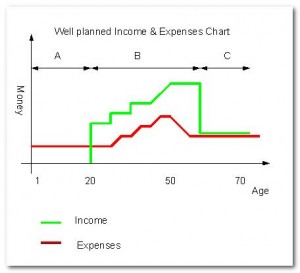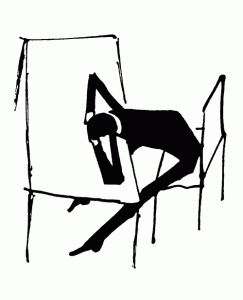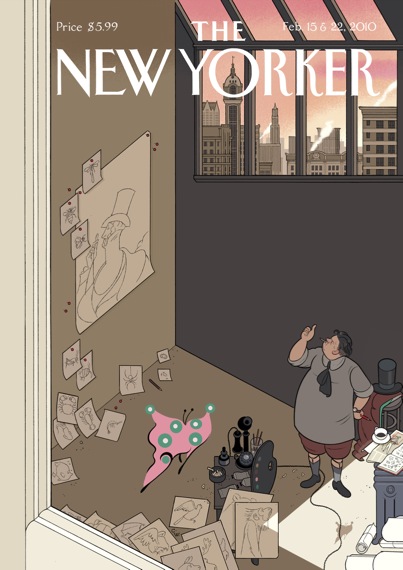CALLING ALL HEARTS: Buy this book now.

Looking, now?
Okay. So Justin Taylor’s debut book with HaperPerennial–Everything Here Is the Best Thing Ever–was recently reviewed in the NYT. It will not be that hard, with that bump, to make this book a NYT Best Seller, which would obviously be a monumental event for Justin and these stories. I implore you: if you haven’t already, but this book from Amazon.com or your local bookstore THIS WEEK. Even if you have a copy already. I bought two more. This could be huge for Justin, this community, and good literature.
![]() I read the first 60 pages of Joshua Cohen’s 800 page forthcoming Witz last night on my sofa. Holy fuck. Put your pants on. Mark your calendars. More on this later, but I just had to…
I read the first 60 pages of Joshua Cohen’s 800 page forthcoming Witz last night on my sofa. Holy fuck. Put your pants on. Mark your calendars. More on this later, but I just had to…
People think if a book is at Amazon it is somehow more “legitimate”
 Below is an excerpt from a paper I wrote about some of the business aspects of publishing. Let me know if you have any questions.
Below is an excerpt from a paper I wrote about some of the business aspects of publishing. Let me know if you have any questions.
As the buzz on Light Boxes picked up last spring, I found it increasingly difficult to keep up with fulfillment. Even Amazon, who had previously been sending Purchase Orders for 2-3 books at a time, started to send orders in the dozens every week, and for shipment to multiple distribution centers. This policy of theirs is extremely frustrating, because for one thing, they don’t pay for shipping even while they demand a 55% discount. For a publisher participating in their “Advantage” program, this structure is backbreaking. Having to mail books to four places, in special packaging (since they’ll destroy any book they deem unsellable), eliminates the already-tiny margin and drives up the cost to the user. For instance, a paperback book like Light Boxes, at 167 pages, stretches product value with a $14.95 price tag. At that amount, though, PG is paid $6.73 per copy. Okay, that isn’t too bad. Subtract from that the cost of production (including printing, design, art rights, cataloging numbers, promotional items and copies and so on), the amount PG earns is closer to $2.25. Now consider Amazon’s tendency to order books to four different locations, which means that shipping has to be paid four times, and the result is that it actually costs about $.30 to sell a book with them. Separately, Amazon charges the customer (or enduser) $3.99 for shipping, which means that the cheapest Light Boxes will sell for through them is $18.94. Having paid this kind of money can cause readers to have certain expectations, and I am always afraid that the shortness of the book will disappoint them. READ MORE >
Power Quote: Kafka on writing

“It is, in fact, an intercourse with ghosts, and not only with the ghost of the recipient but also with one’s own ghost which develops between the lines of the letter one is writing and even more so in a series of letters where one letter corroborates the other and can refer to it as a witness.”
— Franz Kafka, from a letter to Milena
I suspect by “letters” he means, generically, the written word, though he could also be referring to letters, the medium with which he is writing to Milena — or, and this is my fancy, he could mean the letters which make up words themselves, thus dramatically altering exactly what is “[in]between the lines” and their respective “corroborations,” a funny yet telling invocation which hints at some complicity, as if writing is a shameful lie. His “intercourse with ghosts,” short of necrophilia, simply tells of a man who replaced love with words. (One should see desire in the pulp of paper.) Think about Kafka long enough, and you enter a dark tunnel. Don’t think about him, and your world too perfect, untouched.
Duck in a Basket
httpv://www.youtube.com/watch?v=TBmjGV2Kb8k
Whoa, you’d be crazy not to read “Object,” by Richard Wehrenberg, Jr over at Slingshot, then say something about it somewhere on the Internet. These “please help” campaigns are risky, but I appreciate the faith, passion and sacrifice that goes into them. Sacrifice? Well, damn, Josh Kleinberg is giving away a bunch of (20) really great books to people who do him the kindness of promoting the stories. 75% of the books, he says, will be hard for him to part with. Go take a look. (Google alerted me to this deal because one of the books he’s giving away is mine. Thanks Josh!)
Q & A #4

If you have questions about writing or publishing or whatever, leave them in the comments or e-mail them to roxane at roxanegay dot com and we will find you some answers.
If you withdraw a story, is it appropriate to immediately send another story to that lit. journal? What if you have multiple withdrawals from that publication? (And I’m talking the kind of place where you have to email them to withdraw your piece, not just pull it out yourself and they never even knew it was there.) Are they going to get pissed at some point? When does your good/bad luck become a reason to basically stop submitting to a journal?
Sean Lovelace
Yes, they get pissed eventually. Numerous withdraws? I am already souring your name. What are you doing? If you are continually getting accepted by multiple journals, bless you. But why not stop the simultaneous submissions? You obviously know how to write a great story lit mags want. Cut the shotgun approach at this point.
Lily Hoang
I don’t submit enough to journals to withdraw, but I have withdrawn book ms from presses. I do ask if they’ll consider another ms in the future, unless I have a spare lying around (which I never do). Usually, they’re nice, but with one press in particular, I’ve pulled two or three ms from them (one just a week or two after I submitted it). That’s just embarrassing. With journals though, I don’t think it’s a big deal.
Ryan Call
I don’t think it’s bad to immediately send another story to take the place of a withdrawal. It doesn’t bother me when I read submissions for NOÖ. I just mark the previous story ‘withdrawn’ and the new story goes at the end of the queue. As a writer, I tend not to send an immediate replacement. I don’t often have a story to replace another story, so it takes me a long time to figure out what to send to that editor if I had to withdraw another story that I thought was perfect for him or her.
Roxane Gay
Multiple withdrawals gets annoying. To go on a tiny tangent, I get irritated when people withdraw stories the same day or the same week. I realize that cannot be helped at times, but it is aggravating. When you find yourself in the position where you’re always withdrawing stories, it’s time to stop simultaneously submitting or at least submitting to no more than two or three markets for each story. To really answer your question, I don’t mind a writer immediately sending another submission immediately after they withdraw a piece but if it happened four or five times in a very short time span, I would start to get testy about it.
February 18th, 2010 / 2:36 am
Ever freak out about your writing?
httpv://www.youtube.com/watch?v=Ch6Jtk6oJRo
Sometimes writing can knock a whole lot of angry into you. Ever really, really freak out? What happened?
Rest in Unrest
It has even been suggested that I spent six years writing my last novel in order to create a demand that cannot be filled. Basic Black With Pearls has had rave reviews and has been bought by William Morrow Company in New York. Success and 60 cents will get me a ride on the subway. No one can find a copy of my novel in the bookstores.
First published age 45.
Did, but did not enjoy, raising rabbits for food.
94 is way bonus years.
All the literary forms were men’s, all the philosophies were men’s philosophies. … I had to translate these forms into the female
Achieved?
Pointed out that gardens might be an answer to God Money (or that fleas do tricks for food).
RIP Helen. To be avant and overshadowed by a spouse. Push back? Harder? But it happens. But let’s pause.
Chris Ware’s New Yorker cover

"Natural Selection" by Chris Ware, New Yorker, February 2010
Of the four covers for New Yorker‘s 85th Anniversary Issue, my favorite (while I appreciate all of them) is Chris Ware’s. He has a way of condensing large amounts of narrative into small hints or incidents; this is what I enjoy most about Ware: the visual riddles in his work. Eustace Tilley, as implicated by his top hat and green shirt — just a sliver, see it? — resting on his stool, is seen in a sort of aesthetic Darwinian tussle, unknowing of the prophetic butterfly outside his window, a lateral view which places us at the shared “fly’s butterfly’s eye” view. Check out the arc of evolution starting from from the wall: insects to arthropods to aves to primates, to eventually, Eustace himself. Ware’s sense of visual space is simply genius, his empathy abound. We see a pudgy Eustace in sock garters, cutting off his self-portrait just above the belly. And there on the floor rests the butterfly’s shadow, evoking a distance between our orientation as invited voyeurs outside the window and the space inside the artist’s studio. What looks like a self-assured “thumbs up” is, if we are to assume common draftsmen techniques, really just Eustace blocking out the affixed subjects with his thumb, still tentative, despite the cultivated naturalism of this wonderful scene, about what he will select.

